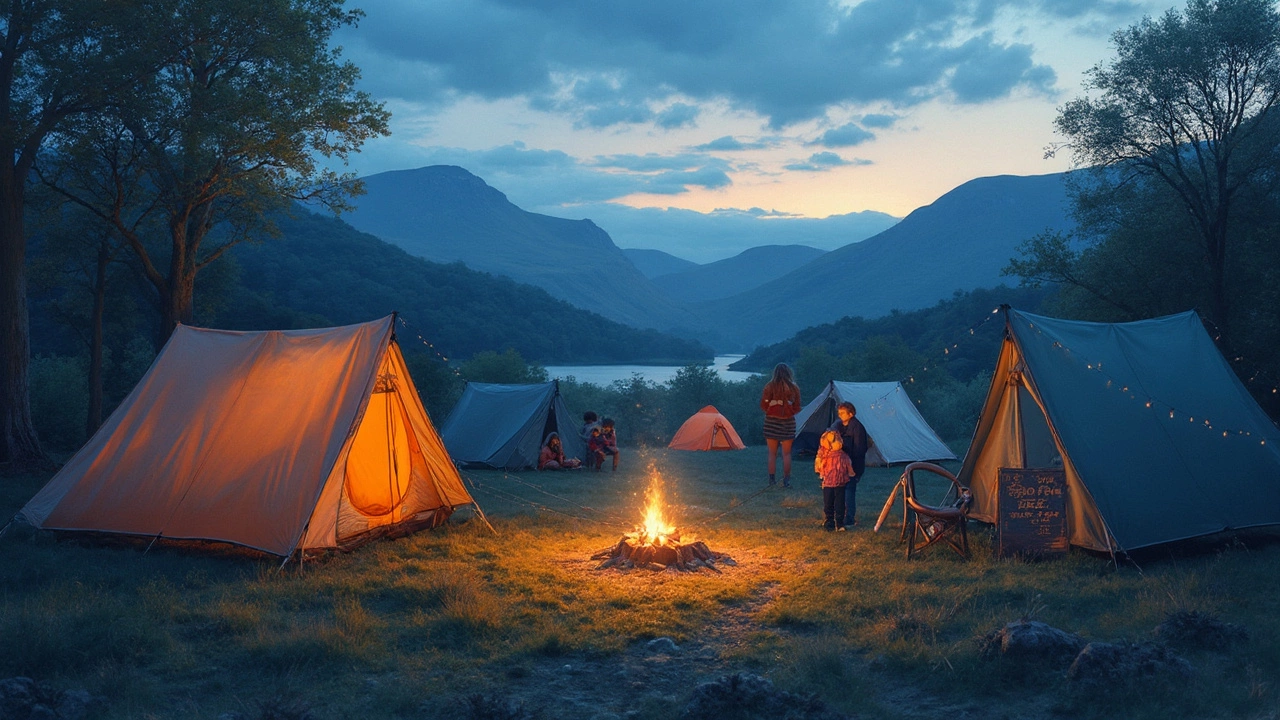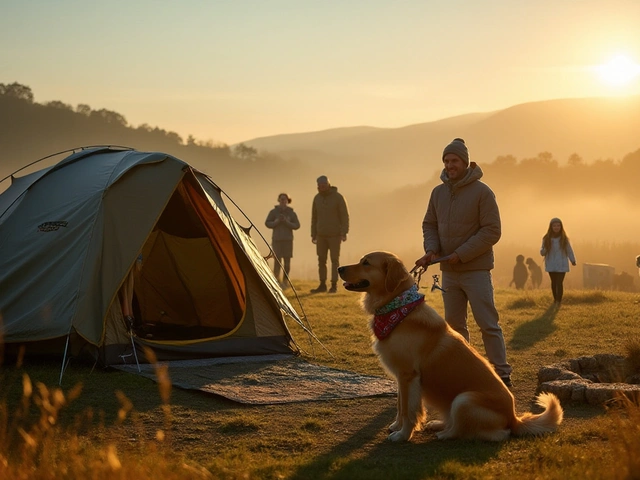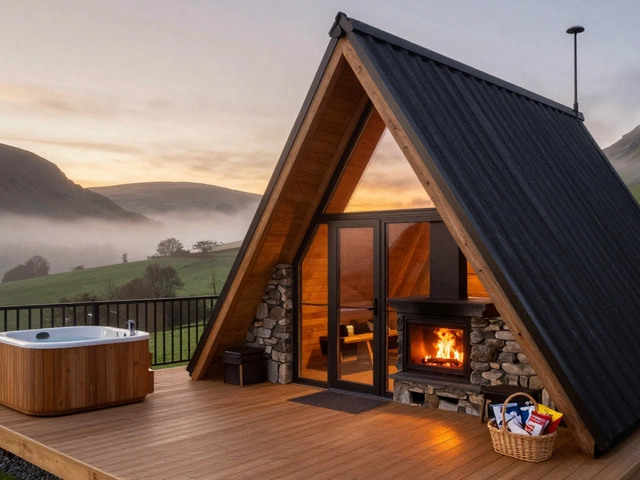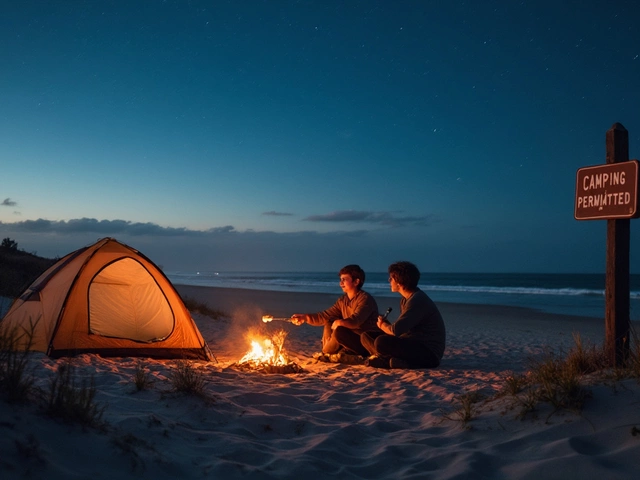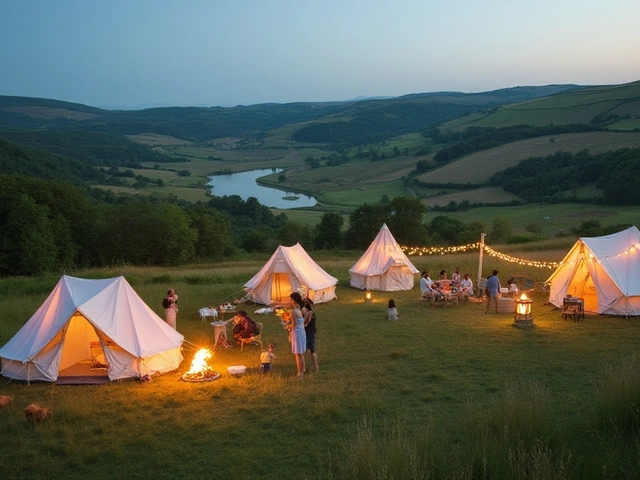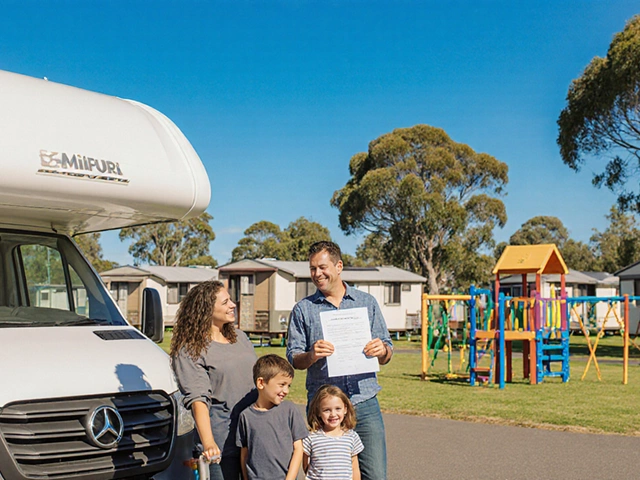So, you're planning a camping trip in the UK? Awesome choice! Before you hit the great outdoors, it's important to get a grip on the rules that come with staying at campsites here. Trust me, knowing these beforehand will save you a bunch of hassle and make your trip way more enjoyable.
First, let's talk about booking. A lot of campsites in the UK require advance reservations, especially during peak seasons like summer. It's not just about securing your spot, but also about understanding the campsite's specific rules, which can vary quite a bit.
Now, on to noise levels. Most sites have designated quiet hours, usually late evening until early morning. These rules help everyone have a pleasant experience. Picture yourself finally drifting off to sleep only for your neighboring camper to start a karaoke session at midnight—not fun!
Booking and Reservations
Let’s dive into the nitty-gritty of sorting out your spot at UK campsites. Booking your patch of paradise isn’t exactly rocket science, but there are a few pointers to keep in mind so you don't end up high and dry.
Campsites UK can get pretty busy, particularly when the summer sun decides to make an appearance. To avoid disappointment, it's a smart idea to book ahead. Many campsites require online reservations, which is super convenient and allows you to spot availability instantly.
Booking Tips
- Check for deals: Some campsites offer early booking discounts or package deals, especially if you're planning to stay a bit longer.
- Cancellation policy: Know it! Plans change, and it's good to know your options if something comes up.
- Group bookings: If you're rolling with a crowd, check if there's a special policy for group reservations, sometimes even getting a nice spot just for yourselves.
Most sites have a simple cancellation procedure, but policies can differ. Make sure you read the fine print so there are no nasty surprises if things don't go according to plan.
Peak vs. Off-Peak
Peak seasons, especially school holidays and bank holidays, see UK campsites flooded with outdoor lovers. Booking well in advance is crucial during these times. On the flip side, camping in off-peak seasons not only means less crowd but often lower prices, and sometimes, even more flexible site choices.
You might also run into campsites that work on a 'first come, first served' basis, which can be a bit of a gamble. If you're up for the adventure, rocking up with fingers crossed can sometimes lead to great discoveries! But for those who like to play it safe, securing your spot online is the way to go.
Noise and Quiet Hours
Imagine this: you've set up camp at a gorgeous UK campsite, surrounded by the tranquility of nature. But then, your relaxation is shattered by loud chatter or music blasting from nearby. Not cool, right? To prevent such dilemmas, most campsites in the UK enforce quiet hours, typically from 10 PM to 7 AM.
During these hours, campers are expected to keep noise to a minimum. That means turning down the volume on any music devices, keeping conversation at a whisper near tents, and generally being considerate of other campers' need for peace and quiet. These rules are pretty much the norm whether you're in Scotland, Wales, or England.
Why Quiet Hours Matter
The idea isn't just to enforce peace, but to ensure everyone can enjoy the sounds of the night—like the rustling leaves or the distant call of an owl. After all, the charm of camping often lies in these gentle sounds.
What Happens if You Break the Rules?
Now, here's the deal if you decide to ignore the noise rules. Some campsites might charge extra fees or even ask noisy campers to leave. A few places might post repeat warnings, but it's better not to push your luck. Besides, who wants the hassle while camping?
Tips for Keeping Quiet
- If you're traveling with kids or pets, remind them of the quiet rules, and plan quiet activities for the evening.
- Consider using soft sleeping mats and pegs to keep movements quiet inside your tent.
- Use headphones if you really want to watch a movie or listen to music.
Remember, respecting the noise rules isn't just about following orders; it's about contributing to a pleasant shared experience at the campsite. Everyone appreciates a good night's sleep, especially after a full day of outdoor fun!
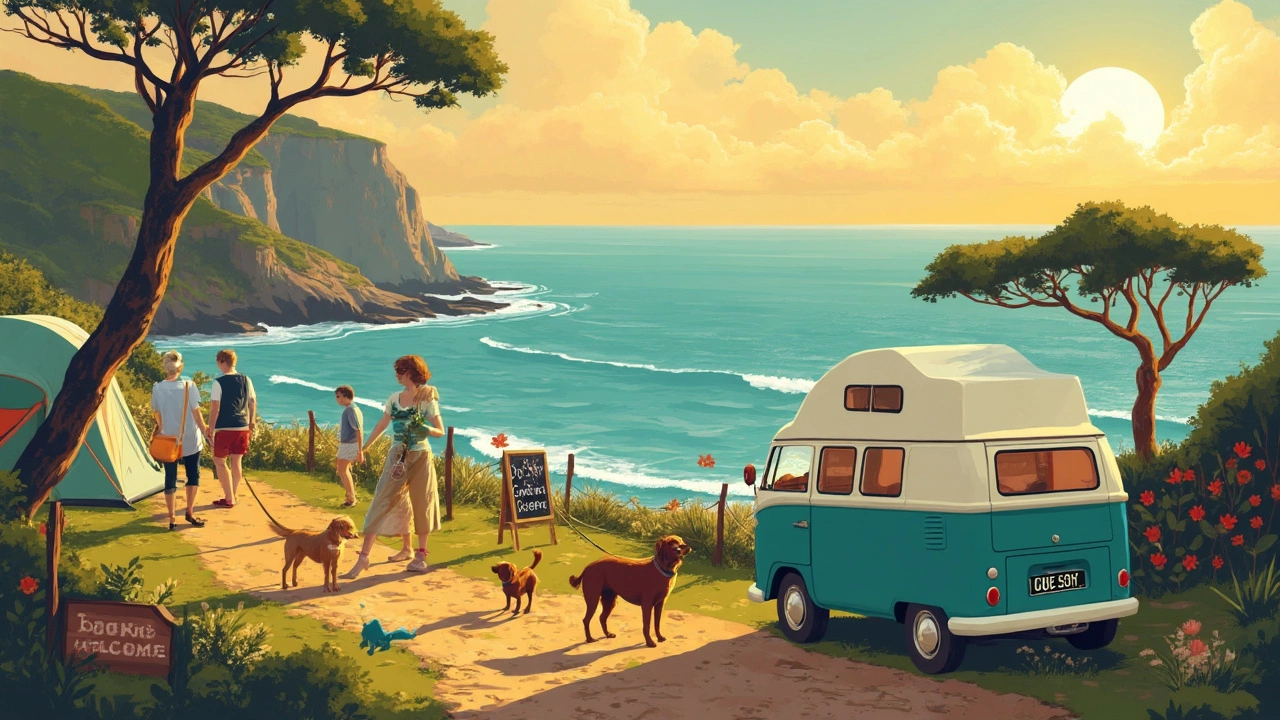
Pet Policies
If you're thinking about bringing your furry friend along on your camping trip, you're in good company. Here in the UK, many campsites welcome pets, but it's crucial to know what's expected.
First off, always check in advance whether pets are allowed. Some campsites have a strict no-pet policy, and you don't want to find this out when you're already there with Rex, wagging his tail excitedly.
Keeping Pets on Leashes
Once you're at the site, you'll most likely need to keep Rex on a leash. This is a common rule across the UK to ensure your pet doesn't disturb wildlife or other campers. A leash is typically required whenever you're outside your tent or caravan.
Cleanliness is Key
No one likes stepping in a surprise left by someone's dog. That's why cleaning up after your pet is a non-negotiable rule at all campsites. Always have poop bags at the ready.
Location-Specific Rules
Remember that some areas, like beaches or nature reserves close to campsites, might have additional pet restrictions. It's always a good idea to check the local rules when planning your camping activities.
Noise Considerations
Keep in mind that excessive barking might be frowned upon. Campsites strive to maintain a peaceful environment for everyone. If your dog tends to bark at every squirrel, consider a bit of extra training before your trip.
Pet-Friendly Campsites
| Campsite Name | Location | Pet Fee | Special Notes |
|---|---|---|---|
| Friendly Fields | Lake District | £5 per stay | Dog wash station available |
| Brighton Haven | Brighton | No fee | Beach access but on-leash only |
With these tips in mind, your camping adventure with Rex should be a blast! Just make sure to follow these pet policies, and both you and your pet will be welcome guests at any campsite.
Campfire Guidelines
Who doesn't love sitting around a crackling campfire? It's like the essence of camping. But in the UK, there are some important guidelines you'll need to follow for a safe and legal experience.
First off, not all campsites in the UK allow campfires. Check the rules for your specific campsite before sparking one up. Some might have designated fire pits, while others could enforce a strict no-fire policy altogether.
Building and Maintaining a Fire
If fires are permitted, make sure you're building it in a safe area. Use existing fire rings or pits wherever possible. Keep your fire size manageable; there's no need for a bonfire. Stick to a controlled flame to avoid sparking a nearby dry area.
Always keep a bucket of water or sand nearby to quickly douse the fire if needed. This will help you manage the fire and prevent any unwanted spread.
Firewood Restrictions
Gathering firewood on-site might be tempting, but in most UK campsites, this is a no-go. It helps protect the local environment. Bring your own wood or buy it from a local vendor. Avoid burning any treated or painted wood as it can release harmful toxins.
Extinguishing Your Campfire
Before you leave the campsite or go to sleep, make sure your fire is completely out. Douse it with water, stir the ashes, and douse it again till there are no more hot embers. Remember, if it's too hot to touch, it's too hot to leave.
Following these campfire guidelines ensures everyone can enjoy a safe and beautiful experience without impacting the environment negatively. Plus, it saves you from any nasty fines or the wrath of unhappy campsite neighbors!
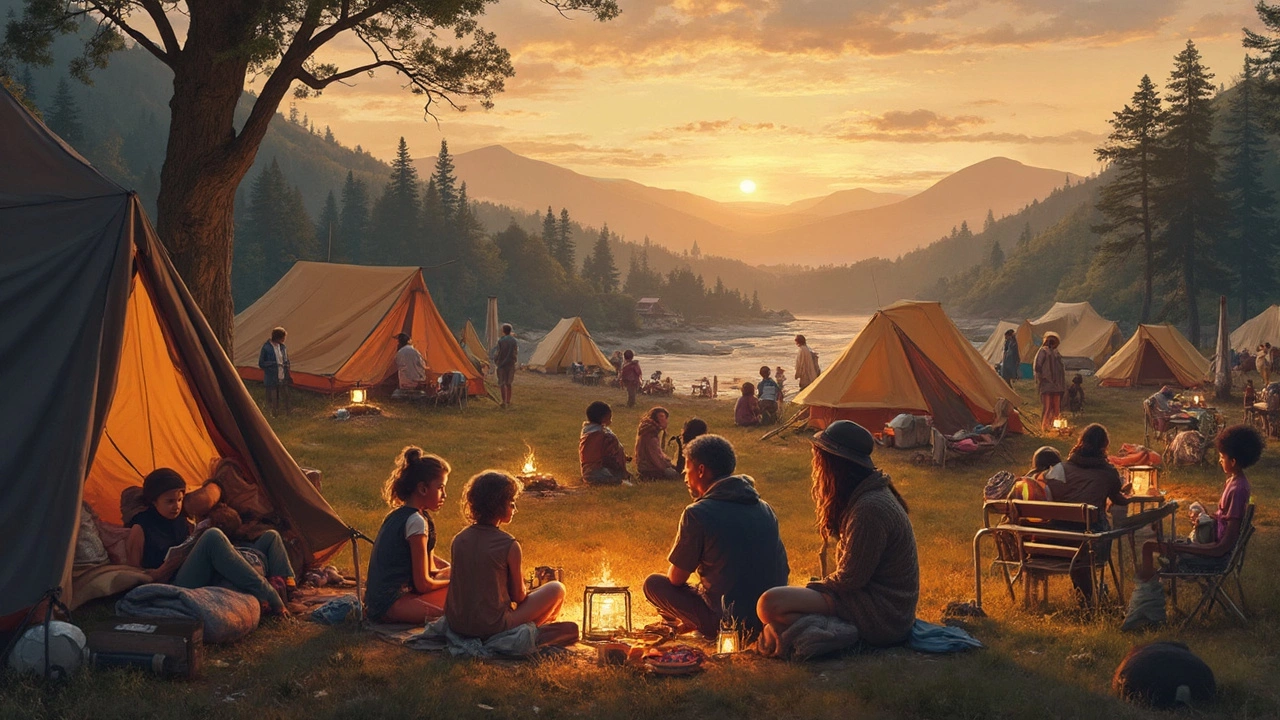
Leave No Trace
The whole point of camping is enjoying the great outdoors, right? But how do we keep it pristine for the next guy or even ourselves on a future trip? That's where the principle of Leave No Trace comes in, and it's a big deal at UK campsites.
Leave No Trace means exactly what it says: leave the place as if you'd never been there. Sounds simple, but it takes a bit of discipline. Here are the key things to keep in mind:
Pack In, Pack Out
This one's crucial. Whatever you bring in, don't leave it behind. This means all your trash, leftover food, and gear should go home with you. Many campsites don't have rubbish bins, so be prepared to transport waste.
Stay on Trails
Wandering off trails might seem fun, but it can damage plant life and disturb wildlife. Stick to designated paths to minimize your impact.
Fire Management
Not all UK campsites allow fires. Where they do, use established fire rings. Always fully extinguish fires before you leave. And when it comes to firewood, use only what's provided or sold locally.
Respect Wildlife
Wildlife encounters can be thrilling, but feeding or getting too close isn't good for the animals or you. Observe them from a distance and don't leave out food scraps.
Minimize Your Impact
Something as simple as setting up your tent in the right spot is important. Use designated sites. If it's a more primitive camping area, choose a spot that's durable, like gravel or sand.
| Action | Impact |
|---|---|
| Using designated fire pits | Reduces risk of wildfires |
| Packing out trash | Keeps environment clean |
| Keeping to trails | Protects plant life |
The UK's beautiful landscapes are a treasure, not just for us but for future generations. By following these Leave No Trace guidelines, every camper helps ensure these spaces remain as amazing as ever.
